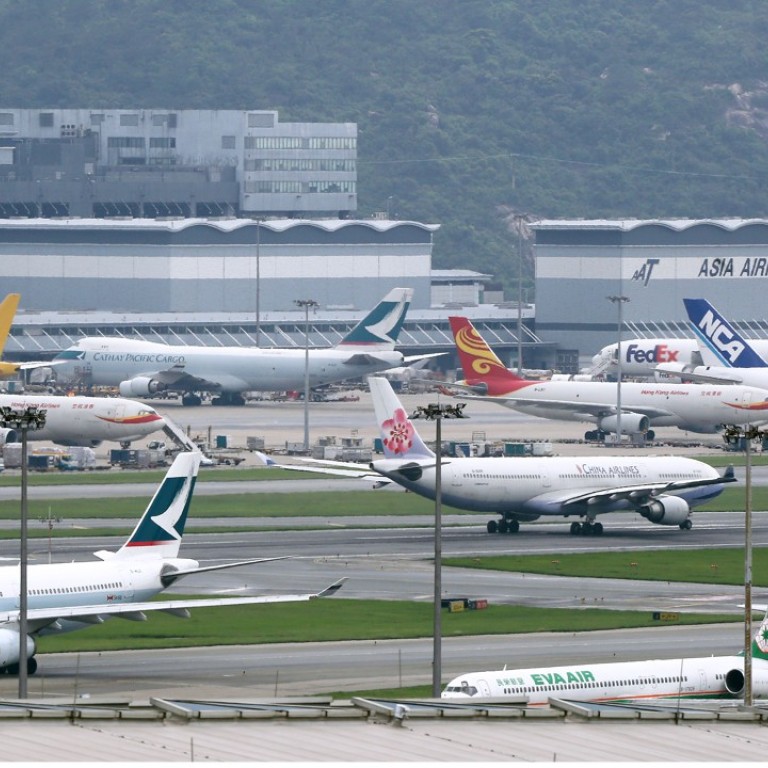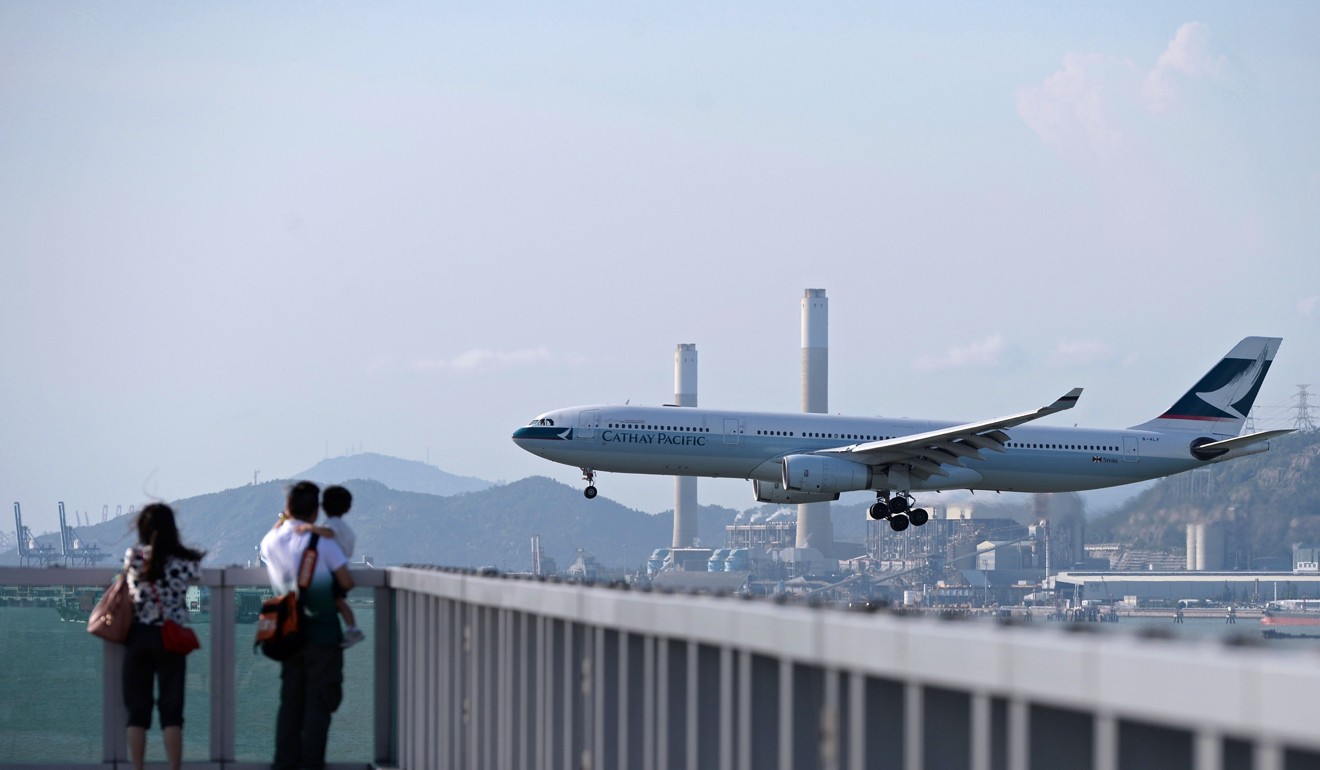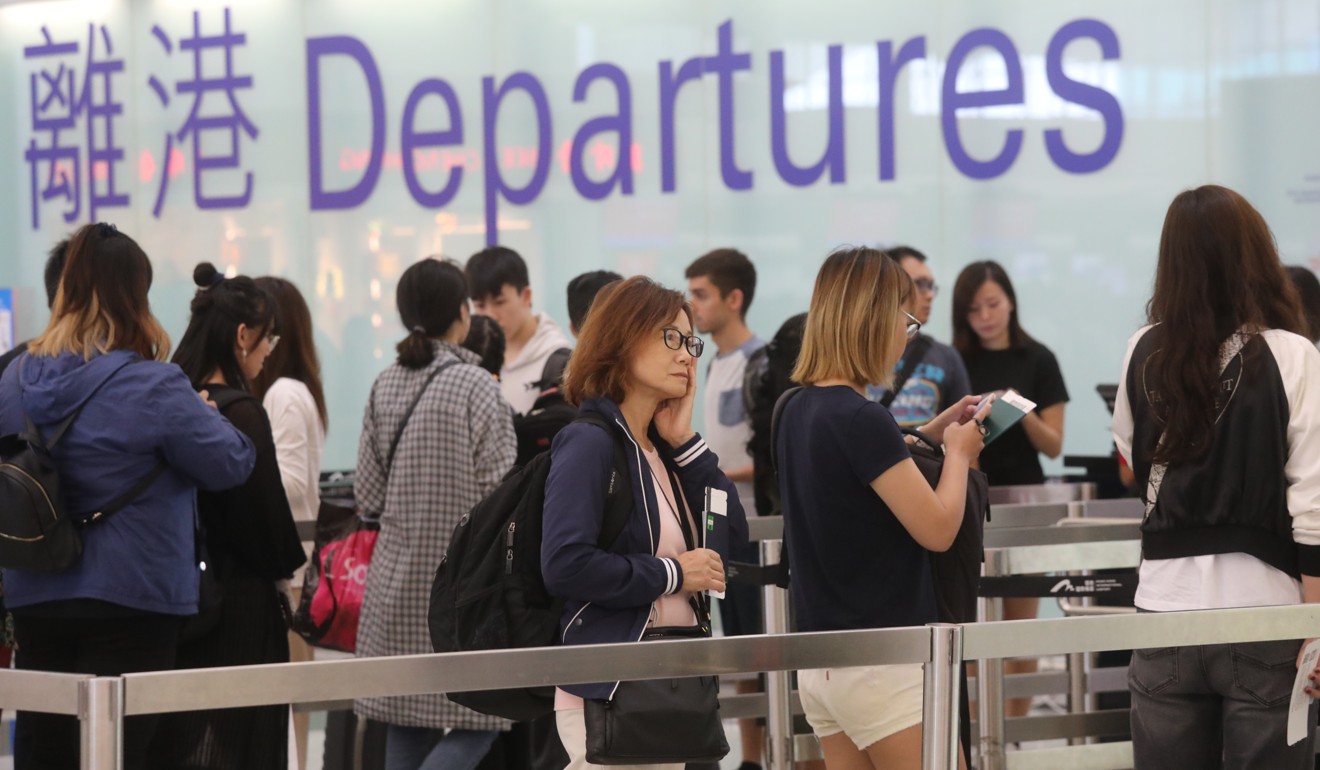
Hong Kong airfares tipped to rise as airlines regain right to add fuel surcharges to ticket prices
Civil Aviation Department deregulates fuel surcharges to keep ticket prices competitive but levies new requirements on airlines to display final price of airfares at all times
Hong Kong passengers can expect to pay more for airfares from November 1 following the government’s decision to allow airlines to add in fuel surcharges – but in exchange, carriers will need to be more transparent and state the final ticket cost upfront.
With the deregulation of fuel surcharges, long-haul fares are expected to increase by several hundred dollars with crude oil closing in on US$80 a barrel. The last time oil was around that price four years ago, airlines slapped an extra HK$623 (US$79.80) on long-haul ticket prices and HK$143 for regional trips.
Announcing the changes on Friday, the Civil Aviation Department (CAD) said: “Under the new display requirements, airlines will need to provide the final price of air tickets at all times and provide a breakdown of the final price to show all ‘must pay’ elements of the ticket fare in each quotation/transaction at their direct sales outlets.”

Airlines that wished to impose a fuel surcharge as part of the final price would need to clearly show the cost of that, along with other “must pay”elements, it added.
Airport Authority on course for HK$57.6 billion passenger tax windfall
The CAD said it had consulted stakeholders and had received general support for the changes. The Consumer Council and the Competition Commission also supported the moves, it said.
In January 2016, the regulator withdrew permission for airlines to add fuel surcharges for flights originating from Hong Kong after oil prices collapsed. It then commissioned a consultancy study on international trends and practices on fuel surcharge regulation.
The initial findings, released last year, concluded there was a global trend of liberalisation of fuel surcharges to enhance competition and recommended the CAD take a similar approach.
In March 2017, the CAD announced a further review of fuel surcharge regulation. This, it said on Friday, found that the fuel cost was part of airlines’ operating costs and had to be recouped.
“Individual airlines should be allowed to make their own commercial decisions on whether to levy a fuel surcharge. The key is to encourage competition and to ensure transparency in price display to facilitate consumers in making informed choices,” it said.
Currently, airlines include fuel surcharges when selling tickets for passenger flights coming into Hong Kong and on cargo flights.
Prepare to pay more for outgoing flights if airlines recoup fuel costs
Independent aviation analyst Will Horton said improved transparency would help those who book tickets via airline websites.
“It’s an all too rare win for consumers, albeit quite late. Other markets have long required opt-in pricing and fare transparency.”
As for fuel surcharges, he warned passengers were still price-conscious and “not open-ended wallets”.
“If the fare with fuel surcharge is too high, passengers won’t pay,” he said.
Cathay Pacific said it would study the CAD’s decision. “Letting passengers know exactly what they are paying for is always good for the consumer,” it said.

The CAD said the majority of airlines offering passenger flights in Hong Kong were already in compliance with the new display requirements. Others were improving their booking systems to meet the rules and would get a grace period of six months to make changes.
The three key changes on ticket pricing are:
● Airlines must clearly display the final ticket price at each stage of the booking process, to boost transparency and remove the appearance of misleading cheap prices.
● Provide a breakdown of all charges, fees and taxes, including any passenger fuel surcharge.
● Optional extras such as travel insurance, a meal or a seat must be provided on an opt-in basis to stop passengers paying for unnecessary extras.
A Consumer Council spokesman said it hoped officials would implement similar regulations for online travel booking platforms, to further liberalise the market and make ticket prices more transparent.
“This is so consumers will enjoy the same rights when buying air tickets from different platforms,” the spokesman said.

